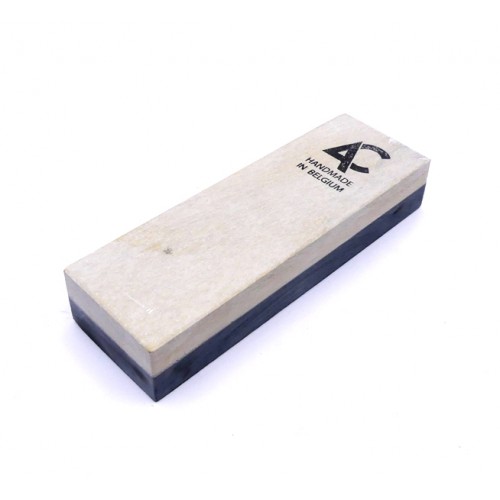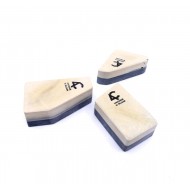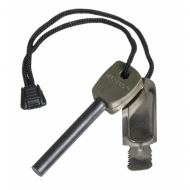
Ardennes coticule yellow natural sharpening stone standard. These coticule stones of Belgian origin are well known by users of classic razors and razors, wood carvers, carpenters, furriers, butchers, cutlers, nature explorers, cooks and anyone who values natural artisan products.
Measurements: 125 x 40 mm.
Grit: 8000 grits (approximate).
Quality: standard.
A Coticule sharpening stone consists of 2 layers. The top layer of Coticule has a thickness between 5 and 10 mm, depending on the Coticule seam (not all Coticule seams from our quarry have the same thickness). This Coticule layer is glued onto an unusable black slate substrate. This substrate is used as a base since Coticule is quite a brittle material. Small cracks can be seen at the edges of the stone. This is perfectly normal for such a brittle material and has no effect on the sharpening properties at all.
Sharpened with Coticule:
Sharpening always uses water. All that is required is to wet the surface of Coticule; it is not necessary to submerge the stone. During sharpening, garnets flake off the Coticule surface. The more garnets that are released, the more abrasive the abrasive compound becomes.
A frequently used method of increasing abrasiveness is to use a grinding stone (see small cutouts available on our website) to produce a high garnet polishing compound on the surface of the Coticule. This is achieved by rubbing the surface of one stone with another, the milky white polishing compound does not take long to appear (slurry). For fine burnishing, the abrasive compound is diluted in several stages with a small amount of water until finally only water remains on the surface.
Coticule is a non-porous stone and cannot clog. Use only water to sharpen, not oil. The oil is only used with porous stones to prevent iron particles from getting trapped in the pores and clogging the pores.
Flattened: Place a piece of sandpaper on a flat surface. Put some water and rub the stone until it is flat. use sandpaper with a grit of +/- 80 to 100 microns.
Stone Lifespan: Lifespan depends on usage. The more intensive the use, the faster the stone will wear out. In general, these sharpening stones will last 20 years in normal use and with minimal care.
Lorem Ipsum is simply dummy text of the printing and typesetting industry. Lorem Ipsum has been the industry's standard dummy text ever since the 1500s, when an unknown printer took a galley of type and scrambled it to make a type specimen book.
- Availability: In Stock
- Reward Points: 960
- Product Code: 16268













